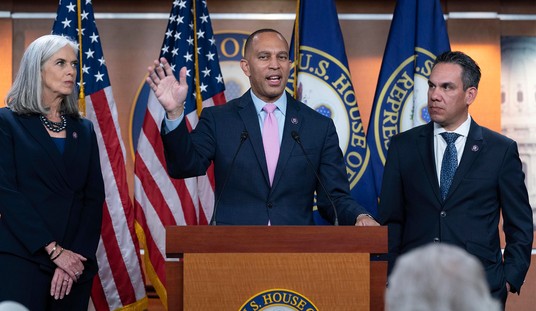
News just came down this afternoon that the Supreme Court has granted certiorari in King v. Burwell (No. 14-114), to decide whether the subsidies provided by Obamacare for the purchase of health insurance policies are available on the federally operated Healthcare.gov exchange, or only on state-established exchanges in those states that have one (a diminishing number, given that several of those states’ exchanges collapsed and the architect of one of them, Maryland Lieutenant Governor Anthony Brown, was defeated in a stunning upset on Tuesday). Thus, the practical import of the case could be enormous across 36 states that lack a state-run exchange.
I and others at RedState have covered the legal arguments extensively, and will doubtless do so further – you can read my analyses here, here and here. The case basically turns on the statutory argument over whether an exchange “established by the State” includes an exchange established by the federal government when a State refuses to do so; the statute defines the term “State” to include the 50 States and the District of Columbia. As you can imagine, this creates some problems under governing legal standards for the Administration’s argument.
If you haven’t followed the procedural twists and turns, what happened is that a divided 3-judge panel of the D.C. Circuit ruled in the Halbig case in July that the plain language of the statute means what it says, and subsidies are only available on State-established exchanges. Another 3-judge panel of the Virginia-based Fourth Circuit issued a ruling a few minutes later in the King case reaching the opposite conclusion. The Administration, having stocked the D.C. Circuit with recent appointees with this case in mind (these were the judges [mc_name name=’Sen. Harry Reid (D-NV)’ chamber=’senate’ mcid=’R000146′ ] rammed through by disabling Republicans from using the filibuster) called for and got the full court to re-hear the case en banc, i.e., not just the 3-judge panel but all the active judges on the D.C. Circuit. The King plaintiffs preferred to skip en banc review (which is something of a rarity and not a required step) and filed straight with the Supreme Court. The Court, by granting certiorari, effectively moots the D.C. Circuit’s en banc consideration of the question, and ensures that the issue will be settled by the end of this Term (the Supreme Court Term generally ends in the last week of June or the first week of July – probably July 2, 2015 at the latest, since July 4 is on a Friday). Thus, while commentators have referred to this as the Halbig case, it will be the King case that goes before the Court (not that the facts of each case differ much).
It might be considered a good sign for the plaintiffs that the Court jumped in early rather than waiting to see if the D.C. Circuit would eliminate the disagreement between the two Circuits, but (1) predicting what the Court will do is a fool’s game and (2) under Court rules, you only need four Justices to agree to take a case, but you need five votes to win. What it probably does mean is that the Court intends to resolve the merits rather than throw the case out on procedural grounds (both Circuits agreed that the plaintiffs had standing to sue). But then, you never know.
You can draw your own conclusions about whether the Court was at all swayed by this week’s election results (an unknowable factor), but while it’s somewhat unusual to dive into a case where the Circuit split might be resolved soon, there were legitimate reasons to act now: waiting would drag the issue, one of obvious national importance, into 2016 and the eve of another Presidential election and create continuing uncertainty for the many players (states, insurance companies, buyers of insurance) in the market. The Court has granted cert in cases of importance without a Circuit split before, as it did in the various Guantanamo detainee cases it heard in the Bush years on appeal from the D.C. Circuit.
If the Court agrees with the Administration, Obamacare goes on as before. If it agrees with the plaintiffs, however, President Obama would need to either go back to the Republican-controlled Congress hat in hand asking for a rewrite of the statute (I’m not sure he even owns a hat), or launch a national campaign to pressure Republican governors to rethink their refusal to run state exchanges. That would put the ultimate fate of Obamacare in the hands of the states and their voters, exactly where Democrats worked long and hard to avoid sending it and where the Court already sent the Medicaid expansion part of the statute, having voted 7-2 to strike down its heavy-handed incentives as an unconstitutional violation of federalism back in 2012.













Join the conversation as a VIP Member